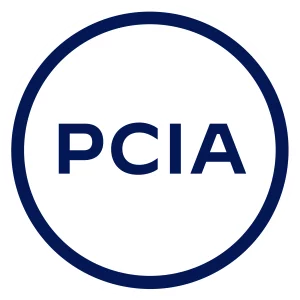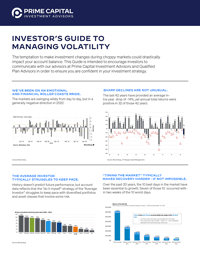As you embark on your retirement planning journey, it’s crucial to foresee potential expenses that may not only nibble away at your hard-earned savings, but could derail your retirement completely.
Remember, retirement is a completely different time of life. After a lifetime spent pursuing your career and socking away a significant portion of your paycheck away into your retirement fund, eventually you will pull the trigger and stop working. After you quit, right as the new freedom and open schedule of retirement starts, the paychecks stop. Instead of bringing money in and putting money into your accounts, you’ll be taking money out to live on.
How will you make your retirement nest egg last throughout retirement?
In order to retire successfully, it’s imperative that you create a retirement plan that incorporates your desired retirement lifestyle as well as unforeseen expenses that may arise. Here are six financial issues to think about and plan for before you retire.
-
Healthcare
Healthcare expenses are one of the biggest unknowns in planning for retirement. Even with Medicare, your premiums, co-pays, deductibles, and other out-of-pocket expenses can be significant.
How expensive will healthcare be? According to Fidelity Investments’ 22nd annual retiree healthcare cost estimate, a 65-year-old retiree can expect to spend an average of $157,500 in healthcare and medical expenses in 2023. If you are a couple, double it!
And remember, this doesn’t include the cost of long-term care if you end of needing it in some form someday, as almost 70% of Americans will according to the U.S. Department of Health and Human Services.
One way to combat growing medical expenses is to open an HSA (Health Savings Account), which you may do by obtaining a high-deductible health insurance policy and HSA account that qualifies. The money saved in an HSA can be used tax free to pay qualified medical expenses in retirement. But remember, you have to do this early, because once you file for Medicare—required at age 65—you can no longer contribute to an HSA.
-
Homeownership
Homeowners know that the unexpected costs for upkeep, repairs and maintenance can wreak havoc on even the best laid plans.
In fact, from 2016 through 2020, Americans aged 65 and older spent an average of $16,880 annually, or $1,406.68 per month, on housing-related costs.
Be sure that you and your financial advisor make home upkeep costs part of your emergency fund so that if—or should we say when—something happens that isn’t covered by homeowners’ insurance, you’ve got the funds needed to cover the cost.
-
Inflation
While inflation is down from its 40-year high last year, it’s still significant and needs to be factored into your retirement plan. (The inflation rate stands at 3.67% at the time of this writing compared to 3.26% last month and 8.26% last year.)
Maintaining a diversified portfolio can help in the long run and working with a financial advisor can help you stay on top of your budget no matter what inflation is doing.
-
Adult Children (and Their Children)
From student loans to cell phone bills, many retirees find themselves financially assisting their adult children, or even their grandchildren. A study by Merrill Lynch found that in 2018, 79% of parents were providing financial support to their adult children, contributing a combined total of $500 billion annually.
In order to retire successfully you need to set boundaries so everyone knows where you stand. Communicate with your family about your financial plans and monetary needs in retirement so that they will be able to foot their own bills and you yours.
-
Taxes
Once you start taking money out of your retirement accounts, remember that you have to pay taxes on the distributions in most cases, especially if the majority of your retirement money is held in traditional 401(k), IRA or similar pre-tax qualified accounts.
In fact, beginning at age 73 you are required to start withdrawing a percentage of this money out every year by midnight of December 31 and pay ordinary income tax on the withdrawals. And the percentage that you are required to withdraw increases every year.
Additionally, as a result of these RMDs (required minimum distributions) along with other income that gets added into a calculation known as “combined income,” you may also have to pay taxes on a portion of your Social Security benefits—up to 85%!
This is exactly why tax planning is imperative for retirees. You may be able to take actions in the years prior to retirement to help you mitigate taxes for the long-term.
-
Longevity
For better or worse, people live much longer these days than they used to thanks to advances in healthcare and technology. Indeed, a baby born in the U.S. has an estimated life expectancy of almost 80 years, according to the Social Security Administration.
While that might mean you get to spend more time enjoying your golden years, it also means you will have greater overall lifetime expenses, and taking steps to ensure you don’t run out of money will become even more important.
If you have questions about whether or not your finances will last throughout your retirement, don’t hesitate to contact Jason Noble at Prime Capital Investment Advisors by calling our office at (843) 743-2926. We will help you put together a retirement distribution plan which takes these six factors and more into account.
Sources:
- https://www.fidelity.com/viewpoints/personal-finance/plan-for-rising-health-care-costs
- https://acl.gov/ltc/basic-needs/how-much-care-will-you-need
- https://www.cnbc.com/2021/08/26/most-retirees-will-need-long-term-care-these-are-ways-to-pay-for-it-.html
- https://www.plansponsor.com/housing-expenses-drive-spending-volatility-in-retirement/
- https://ycharts.com/indicators/us_inflation_rate
- https://mlaem.fs.ml.com/content/dam/ml/registration/ml_parentstudybrochure.pdf
- https://www.irs.gov/retirement-plans/retirement-plan-and-ira-required-minimum-distributions-faqs#
- https://faq.ssa.gov/en-us/Topic/article/KA-02471#
- https://www.ssa.gov/oact/STATS/table4c6.html
This article is provided for general information only and is not to be construed as financial or tax advice. It is recommended that you work with your financial advisor, tax professional and/or attorneys when tax planning.
Advisory products and services offered by Investment Adviser Representatives through Prime Capital Investment Advisors, LLC (“PCIA”), a federally registered investment adviser. PCIA: 6201 College Blvd. Suite #150, Overland Park, KS 66211. PCIA doing business as Prime Capital Wealth Management (“PCWM”) and Qualified Plan Advisors (“QPA”).
100323006 MAH





